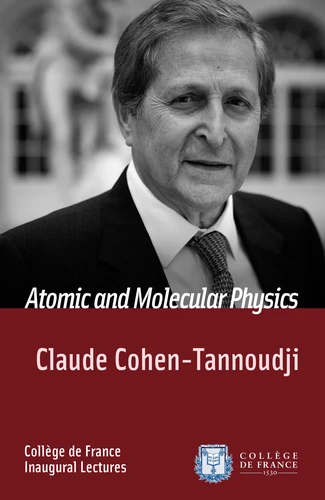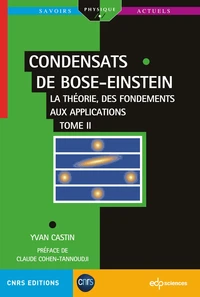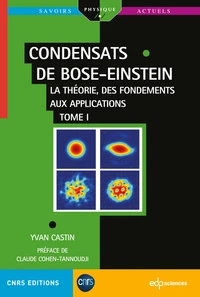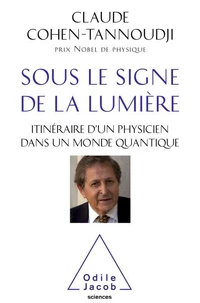Prix Nobel de la Physique
Atomic and Molecular Physics. Inaugural lecture delivered on Tuesday 11 December 1973
Par :Formats :
Disponible dans votre compte client Decitre ou Furet du Nord dès validation de votre commande. Le format Multi-format est :
- Pour les liseuses autres que Vivlio, vous devez utiliser le logiciel Adobe Digital Edition. Non compatible avec la lecture sur les liseuses Kindle, Remarkable et Sony
 , qui est-ce ?
, qui est-ce ?Notre partenaire de plateforme de lecture numérique où vous retrouverez l'ensemble de vos ebooks gratuitement
Pour en savoir plus sur nos ebooks, consultez notre aide en ligne ici
- FormatMulti-format
- ISBN978-2-7226-0281-6
- EAN9782722602816
- Date de parution16/11/2015
- Protection num.NC
- Infos supplémentairesMulti-format incluant PDF avec W...
- ÉditeurCollège de France
Résumé
When physicists began to explore the world of atoms more precisely, as they endeavoured to understand its structure and the laws governing its behaviour, they soon encountered serious difficulties. Our intuitive concepts, based on our daily experience of the macroscopic world around us, proved to be completely erroneous on the atomic scale; the atom was incomprehensible within the framework of classical physics.
In order to uncover these new mysteries, after a great deal of trial and error, entirely new concepts therefore had to be elaborated: the concepts of quantum physics. What are the main stages that have led us to this modern understanding of the atom? What is the present state of atomic physics? How has it contributed to the development of our knowledge and where is it heading?
In order to uncover these new mysteries, after a great deal of trial and error, entirely new concepts therefore had to be elaborated: the concepts of quantum physics. What are the main stages that have led us to this modern understanding of the atom? What is the present state of atomic physics? How has it contributed to the development of our knowledge and where is it heading?
When physicists began to explore the world of atoms more precisely, as they endeavoured to understand its structure and the laws governing its behaviour, they soon encountered serious difficulties. Our intuitive concepts, based on our daily experience of the macroscopic world around us, proved to be completely erroneous on the atomic scale; the atom was incomprehensible within the framework of classical physics.
In order to uncover these new mysteries, after a great deal of trial and error, entirely new concepts therefore had to be elaborated: the concepts of quantum physics. What are the main stages that have led us to this modern understanding of the atom? What is the present state of atomic physics? How has it contributed to the development of our knowledge and where is it heading?
In order to uncover these new mysteries, after a great deal of trial and error, entirely new concepts therefore had to be elaborated: the concepts of quantum physics. What are the main stages that have led us to this modern understanding of the atom? What is the present state of atomic physics? How has it contributed to the development of our knowledge and where is it heading?






















